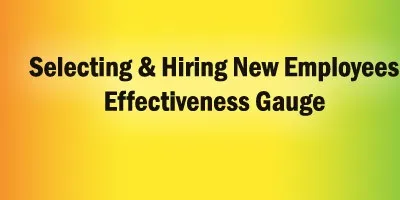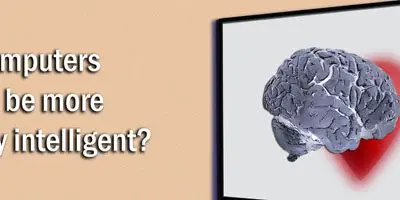Least Effective Way of Selecting and Hiring New Employees
Many companies rely on interviews and reference checks in selecting and hiring new employees. Of the common practices, this is the least... Read More
Emotionally Intelligent Computers Will Help Us How?
Posted on05 Feb 2015
Tagscomputers, organizational culture, customers, emotional intelligence, emotions, internet, leadership, retailing, technology, The New Yorker, training, emotional triggers, big data, clickbait, Elizabeth Dwoskin, Evelyn Rusli, facial recognition software, Meghan Neal, Motherboard, Raffi Khatchadourian, Wall Street Journal
Comments4
As we make computers more human, we learn more about us. This has already changed how we see our skills, talents and... Read More
Science’s Subjective Birth
Posted on30 Oct 2014
Tagsassumptions, emotional intelligence, intelligence, process, scientific, Scientific Method, The Economist, Royal Society, Practicing Safe Science Series
Comments5
Understanding the birth and development of modern science helps us become better problem solvers. It was just an idea over 355 years... Read More
Self-Regulated Psychopath, Implications for Emotional Intelligence (Pt 2)
Posted on05 May 2014
Tagsconflict, organizational culture, Daniel Goleman, diversity, emotional intelligence, emotions, empathy, intelligence, psychopaths, sensitive people
Comments6
Previously, I recommended revisiting Emotional Intelligence (EI) as proposed by advocates of Daniel Goleman. That centered on empathy. This is on self-regulation,... Read More
Empathetic Psychopaths, Implications for Emotional Intelligence (Pt 1)
Posted on24 Apr 2014
Tagsassessments, brain, cognition, Daniel Goleman, emotional intelligence, empathy, happiness, intelligence, psychopaths, Psychopath in Workplace Series, James Fallon
Comments2
It has been over twenty years since Daniel Goleman wrote his groundbreaking book, Emotional Intelligence (EI), and close to twenty-five years since... Read More
How Psychopaths Become CEO’s (Pt 5) – Relational Preferences
Posted on09 Sep 2013
Tagsinterpersonal, uniformity, charisma, Psychopath in Workplace Series, uncertainty, Talent, success, style, rules, relationships, psychopaths, power, Personality, hypocrisy, emotional intelligence, organizational culture, confidence
Comments0
Psychopaths prefer relationships in which we will tend to: Permit psychopaths to break the rules Be seduced by confidence Misinterpret success for... Read More
How Psychopaths Become CEO’s (Pt 4) – Preferred Cultures
Posted on22 Aug 2013
Tagsauthority, competitive, conflict, organizational culture, dissent, diversity, education, emotional intelligence, Harvard Business Review, incentives, negative, process, psychopaths, relationships, rules, self-interest, Psychopath in Workplace Series, bottom-line focus, ends justifies means
Comments0
Previously, the situations and trends psychopaths prefer. Now, we will discuss the cultures as summarized in the introductory post of this mini-series:... Read More
Emotions vs Intuition (Pt 3): Examples of Differences
Emotions serve important evaluative functions. Sorting through them can be difficult. Intuition helps by prioritizing, filtering and directing us. People trigger various... Read More
Emotions and Intuition as Foundation of All Decisions
Posted on25 Feb 2013
Tagsrationale, brain, decision-making process, decisions, emotional intelligence, emotions, empathy, Harvard Business Review, intuition, logic, motivation, reason, research methodologies, strategy, technology, The Economist, Foundation & Frame Analogy, Roderick Gilkey, Ricardo Caceda, Clinton Kilts
Comments2
One of the more contrarian perspectives that has helped me appreciate people’s decisions is that emotions and its interpretive big sister, intuition,... Read More
Emotional Intelligence vs. Intuition (Pt 6): Music Analogy
Long ago, a boss of mine, who played an instrument professionally, discussed with me the playing of musical instruments. I had played... Read More



